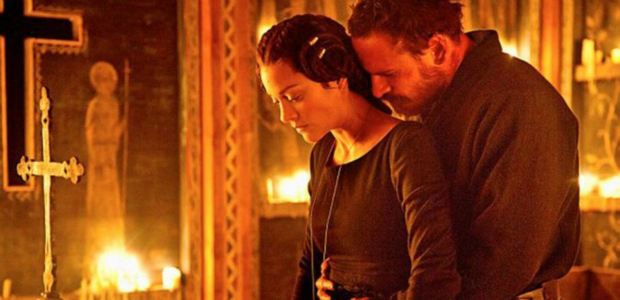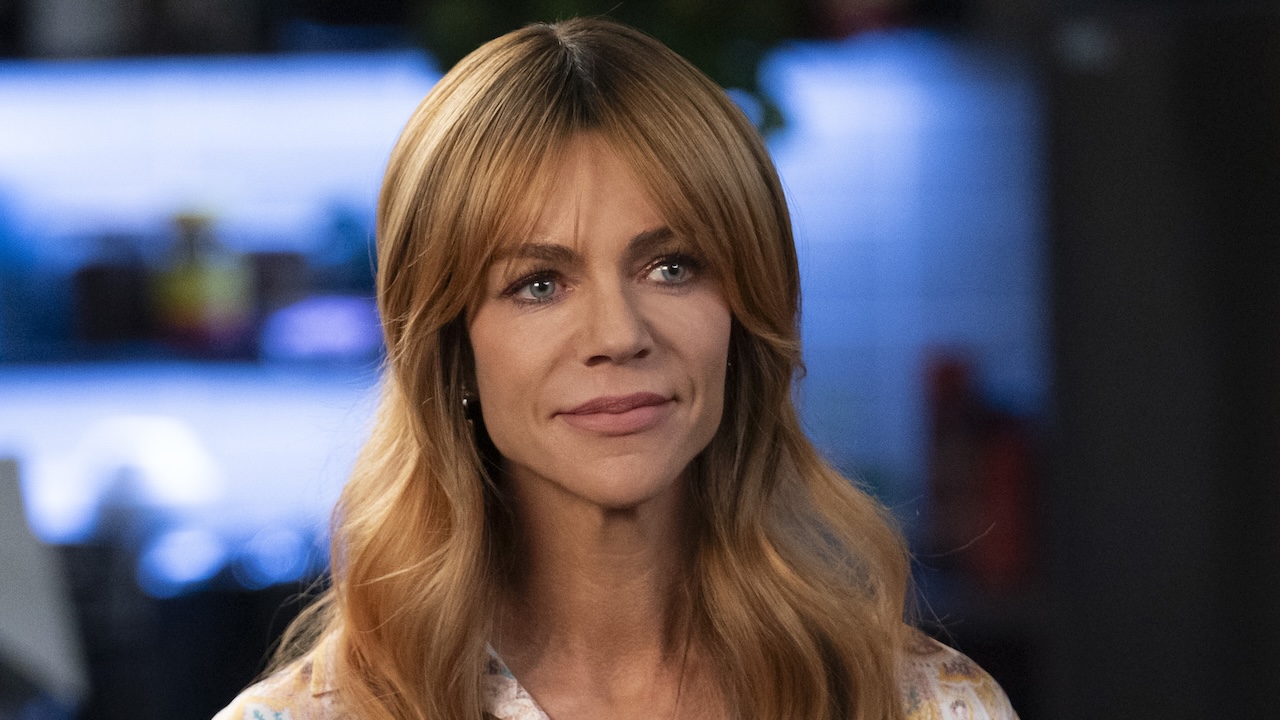Of all William Shakespeare’s plays, Macbeth is widely regarded as the darkest of the bunch. There have been numerous big screen adaptations of the Bard’s tragedy about the King of Scotland, including one from Orson Welles, and an ill-fated transportation of the story to the modern gangland of Melbourne, Australia. However, it has never been as bloody, brutal, or ferocious as in director Justin Kurzel’s new translation, which is saying something for a story full of child murder, witches, battle, plots, and paranoia.
Kurzel keeps the text largely intact, but presents the drama amidst a series of stunning, gauzy images filmed by True Detective cinematographer Adam Arkapaw. As down and dirty as this Macbeth is, it’s gorgeous and almost hallucinatory, imagining eleventh-century Scotland as a near-mythical kingdom where the sky is always a deep, blood red, the air is always thick with fog, and where it is difficult to tell what is real and what is a trick of the mind.
Macbeth (Michael Fassbender) is a Thane of Scotland, a man on the rise thanks largely to his loyalty and fearlessness in battle. When he receives a prophecy from a trio of witches that he will be king, fierce ambition grabs the wheel, spurred on by his wife, Lady Macbeth (Marion Cotillard), and he affects his own ascent to the throne through a series of murders. However, once there, paranoia takes over, and his mind, as well as his grasp on his new seat, begins to slip.
Along with his turns in Steve Jobs and Slow West, Fassbender is having one hell of a 2015. Unswerving and sharp, and fielding a dense Scottish accent, this is a portrait of a once great man undone by power and madness. Psychologically wounded by his time in battle, the death of his child, and the terrible things he does, he comes unraveled and it is truly harrowing to watch. When he delivers Macbeth’s famous, “O, full of scorpions is my mind” line, he practically spits and hisses the words through clenched teeth as you witness him break apart.
Cotillard, on the other hand, takes the opposite trajectory. While her husband begins earnest and good-hearted, she starts the day power-crazed, insidious and scheming from the get go. When she entices Macbeth to commit murder in the throes of a sexual encounter (injecting a level of dark eroticism, and introducing the idea of the sex/death dichotomy, into what is otherwise a tame play on that front), she shows herself as a manipulative puppet master. But when she sees the fruits of her labor—as the bodies pile up, especially the children, and the impact it has on her beloved—she beats a wincing retreat. By the time the film comes to her “To bed” scene, all Kurzel has to do is let the camera linger in a close up of Cotillard; there’s nothing more that scene needs to show than what is written there on her face.
While Michael Fassbender and Marion Cotillard are the centerpieces, the rest of the cast is comprised of fantastic supporting players, all doing wonderful work. Sean Harris transforms Macduff from a good, steadfast man to a tormented, unsettling personification of vengeance, who at one point literally emerges from the flames to redress the wrongs done to him. Paddy Considine’s Banquo, simultaneously watching his friend come undone and seeking to protect his child, is the most affecting character in a narrative not know for emotional closeness. Jack Reynor’s Malcolm, is fine, but not asked to do much more than look worried, especially after the King (an underutilized David Thewlis) is murdered.
As strong as the performances are, it is the overall feel and aesthetic that truly sets Kurzel’s Macbeth apart. From beginning to end, every shot is staged and framed like a painting; stylized, near-silent slow motion is juxtaposed with relentless, disorienting chaos in battle; and the score, from Jed Kurzel, only serves to enhance all of this. A wash of strings flow from mournful and languid to discordant and unnerving, adding to the hallucinatory feel of much of the film.
Your Daily Blend of Entertainment News
The heavy, portentous mood is going to be an element that turns off some viewers. Consistent throughout—maybe a bit too consistent, as there is little rise and fall or ebb and flow—every scene piles on the weight and import, which can become oppressive at times, barely allowing you to breathe as the film crushes the air and hope from your lungs.
Still, Macbeth is a breathtaking, and “bloody, bold, and resolute” movie. Only Justin Kurzel’s second directorial feature, following 2011’s The Snowtown Murders, he stages a classic play in pointed, striking fashion, making it his own in the process (after watching Macbeth, it’s hard not to get very interested to see what he’s going to do in his next team up with Michael Fassbender, the video game adaptation Assassin’s Creed). Full of sound and fury, his Macbeth signifies a great deal indeed.


